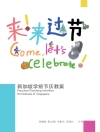Helping teachers engage K–12 students as participatory researchers to accomplish highly effective learning outcomes
Integrating Teaching, Learning, and Action Research: Enhancing Instruction in the K–12 Classroom demonstrates how teachers can use action research as an integral component of teaching and learning. The text uses examples and lesson plans to demonstrate how student research processes can be incorporated into classroom lessons that are linked to standards.
Key Features
- Guides teachers through systematic steps of planning, instruction, assessment, and evaluation, taking into account the diverse abilities and characteristics of their students, the complex body of knowledge and skills they must acquire, and the wide array of learning activities that can be engaged in the process
- Demonstrates how teacher action research and student action learning—working in tandem—create a dynamic, engaging learning community that enables students to achieve desired learning outcomes
- Provides clear directions and examples of how to apply action research to core classroom activities: lesson planning, instructional processes, student learning activities, assessment, and evaluation
Table of Content
Preface
Acknowledgments – Chapter
1. Action Research in Teaching and Learning
2. Learning Theory
3. Lesson Planning
4. Instruction: Facilitating Student Learning
5. Action Learning: Accomplishing Objectives, Outcomes, and Standards
6. Assessment and Evaluation
Appendix. Case Examples
References
Index
About the Authors
About the author
Shelia C. Baldwin’s education career spans 27 years, with seventeen years in public school and ten in higher education. As a high school teacher of English, Reading and ESL, she taught diverse students who were often struggling and disengaged, which inspired her to eventually pursue her Ph.D. Her early work in action research with high school students to study the cultural diversity in their environment was transformational in her perception of classroom life. Her interest, promoting collaboration between teachers and students in the exploration and implementation of alternative instructional approaches, has been a focal point in her continuing work and research as a teacher educator. She has examined her own classes to learn more about teacher candidates’ developing theories about teaching, students, and learning environments. She has developed and supervised service learning field experiences in urban settings for undergraduate and graduate teacher candidates in content literacy courses to provide them with autonomous experiences in diverse settings. Her integration of action research processes introduces the concept of teacher as researcher and guides them toward critical reflection on their experiences that contribute toward their developing theories. She has developed a Master’s level action research course for both initial certification candidates and practitioners.












